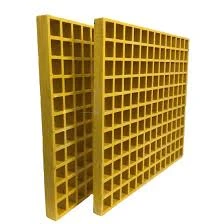
-
 Afrikaans
Afrikaans -
 Albanian
Albanian -
 Amharic
Amharic -
 Arabic
Arabic -
 Armenian
Armenian -
 Azerbaijani
Azerbaijani -
 Basque
Basque -
 Belarusian
Belarusian -
 Bengali
Bengali -
 Bosnian
Bosnian -
 Bulgarian
Bulgarian -
 Catalan
Catalan -
 Cebuano
Cebuano -
 China
China -
 China (Taiwan)
China (Taiwan) -
 Corsican
Corsican -
 Croatian
Croatian -
 Czech
Czech -
 Danish
Danish -
 Dutch
Dutch -
 English
English -
 Esperanto
Esperanto -
 Estonian
Estonian -
 Finnish
Finnish -
 French
French -
 Frisian
Frisian -
 Galician
Galician -
 Georgian
Georgian -
 German
German -
 Greek
Greek -
 Gujarati
Gujarati -
 Haitian Creole
Haitian Creole -
 hausa
hausa -
 hawaiian
hawaiian -
 Hebrew
Hebrew -
 Hindi
Hindi -
 Miao
Miao -
 Hungarian
Hungarian -
 Icelandic
Icelandic -
 igbo
igbo -
 Indonesian
Indonesian -
 irish
irish -
 Italian
Italian -
 Japanese
Japanese -
 Javanese
Javanese -
 Kannada
Kannada -
 kazakh
kazakh -
 Khmer
Khmer -
 Rwandese
Rwandese -
 Korean
Korean -
 Kurdish
Kurdish -
 Kyrgyz
Kyrgyz -
 Lao
Lao -
 Latin
Latin -
 Latvian
Latvian -
 Lithuanian
Lithuanian -
 Luxembourgish
Luxembourgish -
 Macedonian
Macedonian -
 Malgashi
Malgashi -
 Malay
Malay -
 Malayalam
Malayalam -
 Maltese
Maltese -
 Maori
Maori -
 Marathi
Marathi -
 Mongolian
Mongolian -
 Myanmar
Myanmar -
 Nepali
Nepali -
 Norwegian
Norwegian -
 Norwegian
Norwegian -
 Occitan
Occitan -
 Pashto
Pashto -
 Persian
Persian -
 Polish
Polish -
 Portuguese
Portuguese -
 Punjabi
Punjabi -
 Romanian
Romanian -
 Russian
Russian -
 Samoan
Samoan -
 Scottish Gaelic
Scottish Gaelic -
 Serbian
Serbian -
 Sesotho
Sesotho -
 Shona
Shona -
 Sindhi
Sindhi -
 Sinhala
Sinhala -
 Slovak
Slovak -
 Slovenian
Slovenian -
 Somali
Somali -
 Spanish
Spanish -
 Sundanese
Sundanese -
 Swahili
Swahili -
 Swedish
Swedish -
 Tagalog
Tagalog -
 Tajik
Tajik -
 Tamil
Tamil -
 Tatar
Tatar -
 Telugu
Telugu -
 Thai
Thai -
 Turkish
Turkish -
 Turkmen
Turkmen -
 Ukrainian
Ukrainian -
 Urdu
Urdu -
 Uighur
Uighur -
 Uzbek
Uzbek -
 Vietnamese
Vietnamese -
 Welsh
Welsh -
 Bantu
Bantu -
 Yiddish
Yiddish -
 Yoruba
Yoruba -
 Zulu
Zulu
FRP Water Storage Solutions for Enhanced Durability and Efficiency
The Versatility and Efficiency of FRP Water Tanks
In recent years, the demand for efficient and durable storage solutions has surged, particularly in industries such as agriculture, construction, and municipal water services. One innovative solution that has gained significant attention is the Fiber Reinforced Polymer (FRP) water tank. These tanks are not only strong and lightweight but also possess a range of characteristics that make them ideal for various applications.
Understanding FRP
Fiber Reinforced Polymer is a composite material made from a polymer matrix reinforced with fibers. The fibers, which are typically glass or carbon, provide strength while the polymer contributes to resistance against environmental factors such as corrosion, UV rays, and chemicals. This unique combination results in a material that can withstand extreme conditions, making it highly suitable for water storage.
Advantages of FRP Water Tanks
1. Corrosion Resistance One of the primary benefits of FRP water tanks is their resistance to corrosion. Unlike traditional steel or concrete tanks, which can deteriorate over time due to rust or chemical reactions with stored substances, FRP tanks maintain their integrity for many years without the need for frequent maintenance. This characteristic is particularly beneficial in regions with high salinity or harsh chemicals.
2. Lightweight and Easy to Install FRP water tanks are significantly lighter than their metal or concrete counterparts. This feature not only makes transportation easier but also simplifies the installation process. Whether for residential use or large-scale industrial applications, FRP tanks can be quickly set up with minimal effort, saving time and reducing labor costs.
3. Customizable Designs Another advantage of FRP tanks is their customizable nature. They can be manufactured in various shapes and sizes to meet specific requirements. Whether you need a compact tank for a small property or an extensive system for industrial use, FRP tanks can be tailored to fit your needs perfectly.
frp water tank

4. Thermal Insulation FRP tanks offer excellent thermal insulation properties, helping to maintain the temperature of the stored water. This is particularly important for applications where water temperature plays a crucial role, such as in agriculture, where ideal water temperatures can affect crop yields. By keeping water temperatures stable, FRP tanks can enhance overall efficiency and productivity.
5. Cost-Effective Long-Term Solution While the initial investment in FRP tanks may be higher compared to traditional options, the long-term savings are substantial. With lower maintenance costs, resistance to corrosion, and energy efficiency, FRP tanks can prove to be a more economical choice over time. Their durability also means fewer replacements are needed, reducing long-term expenditure on water storage solutions.
Applications of FRP Water Tanks
FRP water tanks find applications in a wide range of sectors. In the agricultural sector, these tanks can be utilized for irrigation purposes, ensuring crops have a consistent water supply without the risk of contamination. Their lightweight nature allows for easy transport to remote areas, where traditional tanks might be impractical.
In the construction industry, FRP tanks can be used for storing water, chemicals, and other fluids essential for various processes. Their resistance to corrosive materials makes them ideal for holding substances that would degrade traditional materials.
Municipal water services also benefit from FRP tanks. As communities strive for sustainable solutions, these tanks provide a reliable means of storing water for consumption and firefighting purposes without the environmental concerns associated with traditional materials.
Conclusion
The increasing demand for efficient, durable, and reliable water storage solutions has made Fiber Reinforced Polymer water tanks an attractive option across multiple industries. Their advantages—such as corrosion resistance, lightweight construction, thermal insulation, and cost-effectiveness—combine to create a versatile solution for various applications. As technology advances and the need for sustainable practices intensifies, FRP water tanks will undoubtedly play a key role in shaping the future of water storage. Embracing these innovations not only provides immediate benefits but also contributes to a more efficient and environmentally friendly approach to resource management.









